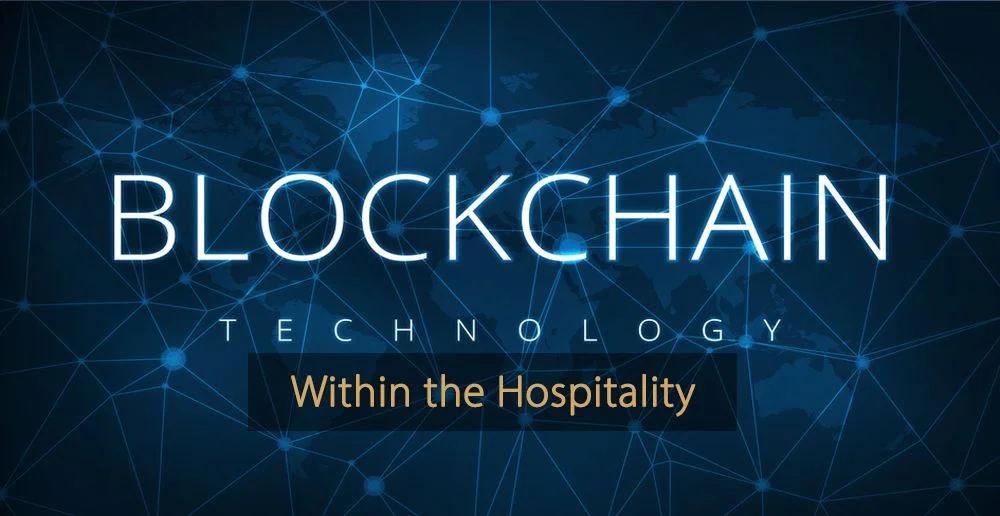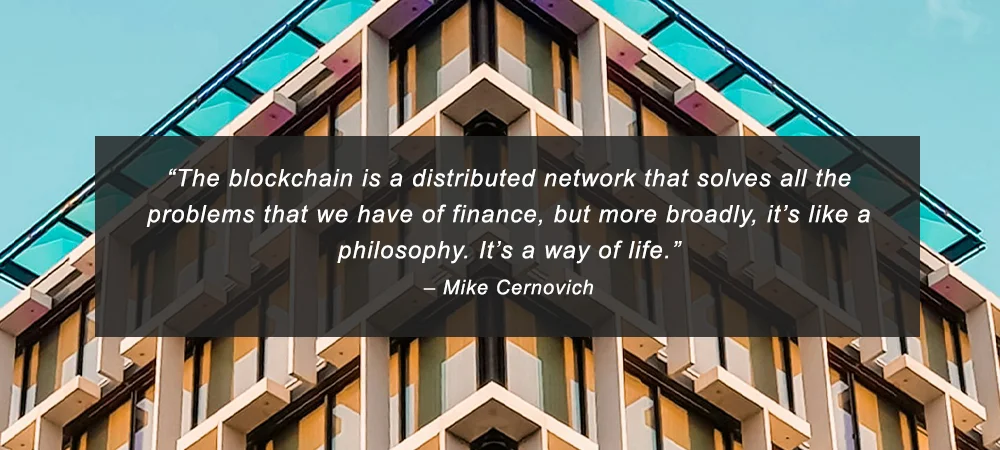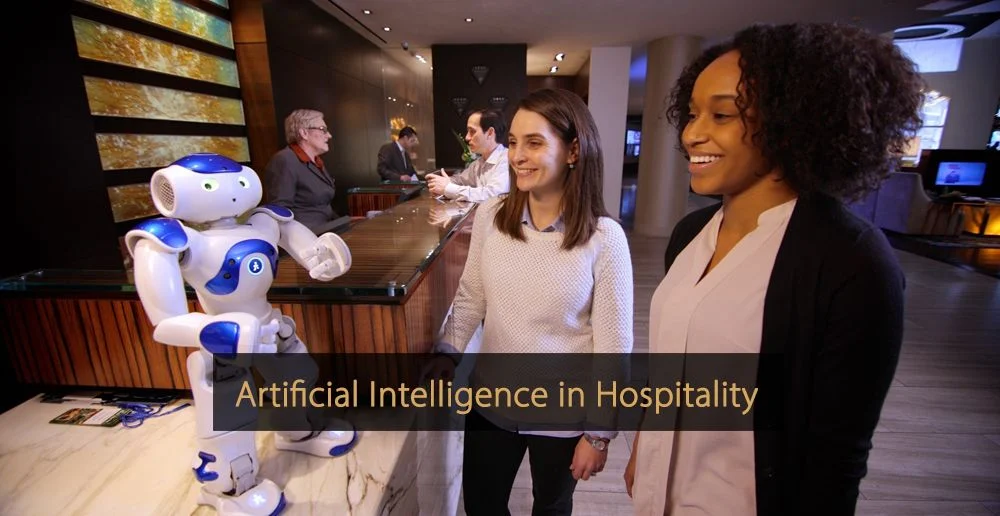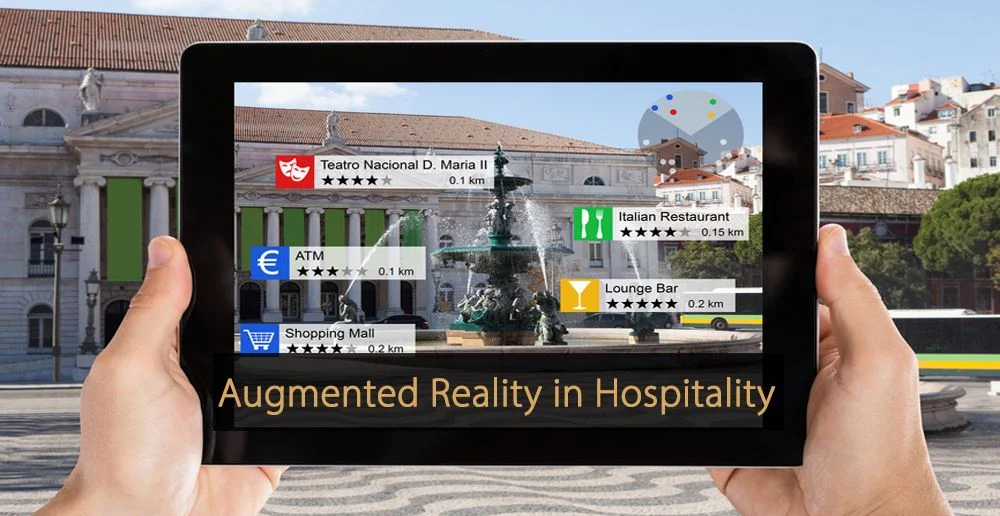Blockchain technology is one of the most exciting digital technology innovations of recent times. Despite its relative youth, it has the potential to alter the way transactions are made fundamentally and information is stored and accessed. In this article, we take a closer look at the blockchain, explain it, and explore its current and potential future uses within the hospitality industry.
Table of Contents:
- What Is Blockchain?
- What Are the Advantages Of the Hospitality Industry?
- 4 Ways the Blockchain Can Be Used Within the Travel Industry
- Examples of Blockchain Usage Within the Hospitality Industry
- More About Blockchain
- Blockchain Technology Hospitality Opportunities and the Metaverse
What Is Blockchain?
Blockchain is a public ledger, or list of digital records, where transactions are recorded anonymously and permanently. The database’s records, or ‘blocks,’ are secured using cryptography. Once the information has been recorded in the blockchain, it resists modification, meaning the data cannot be altered.
Blockchain technology is decentralized, meaning information is not stored anywhere. This prevents manipulation and makes all data transparent. Many people share the record of events across a network, which provides additional security benefits, as there is no central point of failure or vulnerability. According to the Global Blockchain Market Report by SkyQuest, the global blockchain market size is projected to grow at a CAGR of 80.8% until 2031.
Moreover, all information added to the blockchain is time-stamped. This ensures that all data entries are traceable, further enhancing the database’s transparency.
The following video will explain more:
What Are the Advantages Of the Hospitality Industry?
Blockchain technology has several advantages for those operating in hospitality management, one of the most obvious being the security and stability benefits. For instance, all data is decentralized and traceable. The database can never go offline or be removed through a cyber-attack, which can be important when dealing with financial transactions.
In addition, technology could play a vital role in simplifying actual payments. This can be somewhat complicated, especially when dealing with overseas settlements. With blockchain technology, the entire process can be streamlined and made more transparent, increasing trust.
Furthermore, the travel industry relies upon information and personal possessions being passed between multiple companies. The blockchain can make accessing and storing information much easier, allowing for enhanced collaboration and ultimately improving the overall travel experience for customers.
More information about the advantages of the hospitality industry can be found by watching the following video:
4 Ways the Blockchain Can Be Used Within the Hospitality Industry
Although the potential uses for the blockchain within the hospitality industry are almost limitless, some applications have emerged and have a transformative effect, while others are just around the corner. Four of the most important ways the blockchain can be used are explained in more depth below:
1. Secure Payments
Secure payments will be blockchain’s most obvious practical application in the hotel industry. Whether it is accepting cryptocurrency like Bitcoin or Ethereum or simply providing a transparent, safe, global ledger, bank payments can be streamlined, and associated hotel costs can be reduced. According to the Worldwide Blockchain Spending Guide by IDC, cross-border payments account for around 16% of the total blockchain market.
2. ID and Security
One of the most exciting potential uses of blockchain within the hospitality industry is related to identification and security services. Passengers must provide ID at various stages of their journey, but industry-wide adoption of the blockchain could potentially allow for a shared digital database. Passengers could provide a fingerprint to quickly and seamlessly verify who they are, reducing waiting times.
3. Loyalty Programs
Loyalty reward schemes are an important part of generating return customs. Blockchain technology can enhance the quality of loyalty programs by simplifying the process, making it easier for customers to access and redeem their points. With the blockchain, rewards can be distributed through digital tokens that could potentially be used anywhere, at any time, while the inherent security benefits could reduce loyalty scheme fraud.
4. Baggage Tracking
Finally, the uses of the blockchain within the travel industry extend to things like luggage tracking. Typically, a traveler’s luggage changes hands many times throughout a journey, which can result in logistical issues. The centralized nature of the blockchain allows different companies to share and access related data easily.
Table: More Ways to Use Blockchain in Hospitality
Examples of Blockchain Usage Within the Hospitality Industry
It is important to stress that, aside from the hypothetical future potential of the technology, the blockchain is already in use within the travel and hotel industry. Some of the most significant examples of this are described below, complete with details of how they are helping hotels, customers, and the industry as a whole.
1. TUI Bed-Swap – Inventory Within the Blockchain
TUI, the largest tourism company in the world, was among the first to truly commit to blockchain technology, through the launch of ‘Bed-Swap’; an in-house Blockchain project. The technology allows TUI to assess demand and move inventories between different points of sale in real-time. From there, it can flex selling margins based on demand.
More information is contained in the following video:
2. LockChain – Direct Marketplace With 0% Commission
LockChain is a direct marketplace powered by blockchain technology, allowing hotels and other hospitality companies to rent their property. It is an all-in-one platform, allowing property management and payment to occur in one place. The decentralized booking engine cuts out ‘middlemen.’ Another major advantage is that LockChain operates a subscription model with a zero-percent commission policy.
An introductory video about LockChain can be found here:
3. Trippki – Loyalty Reward System Via the Blockchain
Trippki has started using the blockchain through the launch of its loyalty reward system. Again, the service benefits from cutting out third-party involvement and directly connecting hotels and customers. Customers are rewarded with native ‘TRIP’ tokens for staying at a hotel or using hotel amenities. The TRIP tokens are recorded in the ledger, do not expire, can be used to book future visits, or can be exchanged for cash.
The following video explains more about this system:
4. BeeToken – Home-Sharing Blockchain Platform
BeeToken, or Beenest, is a blockchain home-sharing platform that connects customers with hosts and allows customers to arrange and pay for stays. Its peer-to-peer transactions mean that no commission is charged, while the platform’s decentralized nature provides added security benefits. The BeeToken platform includes payment, reputation, and arbitration protocols, helping to keep both customers and hosts safe.
More about BeeToken can be learned from this video:
5. Winding Tree – Booking and Baggage Tracking
Finally, Winding Tree is an existing open-source demand and supply-side marketplace for inventory tracking. Several airline companies, including Air New Zealand and Lufthansa, have already entered into a partnership with the platform, with advantages including an example of a blockchain booking and baggage, a lack of third-party involvement with booking procedures, and greater transparency and traceability when it comes to baggage tracking services.
More about Winding Tree can be learned from this video:
More About Blockchain
Understanding blockchain technology can be a little daunting. Still, the technology is less complicated than it initially seems, and its potential to disrupt the entire hospitality sector is enormous, so it is worth learning more about. If you have some spare time and want to find out a little more, we recommend the following video:
The Potential of Blockchain To Disrupt The Hotel Industry by Ron Galloway:
Blockchain Technology in Hospitality Opportunities and the Metaverse
In addition to the blockchain technology hospitality trends and uses outlined, blockchain is also a concept closely associated with the metaverse. This refers to a network of 3D metaverse virtual words where users can interact socially, and a growing number of hospitality businesses are waking up to their full potential.
Read the “Metaverse Opportunities for the Hospitality Industry” article for a lot more information on the metaverse, how hospitality companies use metaverse technology, and future opportunities in this area.
Blockchain Technology in Hospitality Industry FAQs
Blockchain is a relatively new digital technology that serves as a decentralized database, allowing information to be entered and stored across an entire network. For the hospitality industry, this offers enormous potential in reducing third-party involvement, enhancing security, improving the speed and ease of transactions, and allowing important information to be accessed anywhere.
Did You Like This Article About Blockchain Technology in Hospitality Industry?
You might also be interested in the following articles:
- How to Use Artificial Intelligence in the Hospitality Industry
- How Augmented Reality Is Transforming the Hospitality Industry
- How Virtual Reality (VR) Can Enrich the Hospitality Industry
- How the Internet of Things (IoT) Can Benefit the Hospitality Industry
- How Can Voice Control Benefit the Hospitality Industry?
- Smart Hotel; What Are the Benefits for Hotel Owners and Guests?
More Tips to Grow Your Business
Revfine.com is the leading knowledge platform for the hospitality and travel industry. Professionals use our insights, strategies, and actionable tips to get inspired, optimize revenue, innovate processes, and improve customer experience.Explore expert advice on management, marketing, revenue management, operations, software, and technology in our dedicated Hotel, Hospitality, and Travel & Tourism categories.
This article is written by:
Hi, I am Martijn Barten, founder of Revfine.com. With 20 years of experience in the hospitality industry, I specialize in optimizing revenue by combining revenue management with marketing strategies. I have successfully developed, implemented, and managed revenue management and marketing strategies for individual properties and multi-property portfolios.










Hey I am so delighted I found your website, I really found you by error, while I was researching on Askjeeve for something else, Nonetheless I am here now and would just like to say thanks for a tremendous post and a all round enjoyable blog (I also love the theme/design), I don’t have time to browse it all at the minute but I have saved it and also added in your RSS feeds, so when I have time I will be back to read more, Please do keep up the awesome job.
Thank you for the information about blockchain used in hospitality.